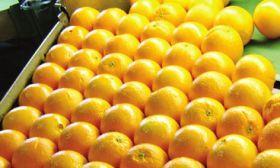
Mildura Fruit Company (MFC) has confirmed its plans to export independently to the US market in 2010 after news broke last week that it was pulling out of the Riversun programme.
Riversun has coordinated Australian citrus exports to the US market since the early 1990s, with a single point of entry through DNE World Fruit Sales, and MFC was one of the four founding shareholders of the cooperative.
Up until three years ago, the vast majority of Australian citrus exports to the US were sent on reefer vessels, with Riversun coordinating charter shipments. But the industry has since switched over to using reefer containers, due primarily to their logistical advantages and the greater flexibility they offer.
In the wake of this shift, and with the need to cut costs in an increasingly competitive US market, MFC has decided to bypass Riversun and ship directly to DNE in the US.
“Now that all exporters are shipping in refrigerated containers, supply arrangements to the US are no different to the way that MFC supplies importers in all other markets around the world,” said MFC’s MD Russell Witcombe in a letter to its growers explaining the move.
“In 2010, MFC will directly manage supply to DNE, as we do with all other overseas buyers, and save our growers the cost of the Riversun pallet levy. A large exporter like MFC has the ‘in house’ capability to undertake the US supply and administration and can save the Riversun levy.”
The letter did not detail what brand MFC will be packing under for the US market in 2010, but confirmed that the company is in the process of finalising operational arrangements with DNE for the coming season.
“Wherever we can, MFC is attempting to simplify the supply chain and take out costs,” said Mr Witcombe. “MFC remains committed to the US market. Importantly, direct supply to DNE will bring MFC closer to our customer and the consumer of our growers’ citrus.”
MFC’s decision to withdraw from Riversun comes as a significant blow to the Renmark-based cooperative. Industry estimates indicate that MFC contributed around a third of the fruit shipped under the programme.
Riversun’s volumes will be further impacted in the coming season by a marked drop in the Australian navel crop following a heatwave that hit Australia’s southern citrus growing areas late last October.
Riversun chairman Peter Walker, who could not be reached for comment, reportedly told the ABC that the combined losses would make it difficult for the company to export effectively.
Riversun CEO Steve Allen, who has announced he’ll be leaving the company at the end of February, told Fruitnet.com the downturn in navel production does not appear to be as dramatic as originally projected, however.
“People were saying it could be down by as much as 50 per cent, but we’re working on it being down by 30 per cent at this stage,” he said. “The early to mid varieties have not fared so badly but late varieties appear to be pretty hard hit.”
On a more positive note, fruit sizing on the upcoming Australian navel crop looks to be much larger than last year, which augurs well for shipments to the US. “Fruit size will be very big this year,” Mr Allen confirmed. “We’re looking to peak on count 56.”
Mr Allen, who has spent 14 years with Riversun, is leaving to join Australian exporter Fresh Produce Group as category manager – exports. At this stage, he said it was not clear whether he would be replaced at Riversun.
Meanwhile, MFC has revealed that it will be forced to cold-treat all its shipments for the US market for the duration of the 2010 navel season following the finding of a gravid (pregnant) Queensland fruit fly in Mildura on 12 January.
Since MFC’s packhouse operation is located within the 15km exclusion zone, all its shipments must be cold-treated in transit once the season commences in May. The company said it is fully geared up for the new protocol, however, and is confident that the arrival condition of the fruit will not be affected.
“MFC normally ships at 3oC and the quarantine protocol requires shipment at a pulp temperature below 2.2o C for 22 days,” said Mr Witcombe. “For the past two seasons, all Riverina citrus to the US has been cold-treated in transit and the product has arrived in excellent condition and with lower levels of decay than Sunraysia and Riverland fruit. “
MFC’s product will need to be precooled to 2oC prior to loading into containers, a process which will delay shipments for two days, but Mr Witcombe said the company had changed its packaging to improve air circulation and reduce the “temperature pull-down time”.






No comments yet